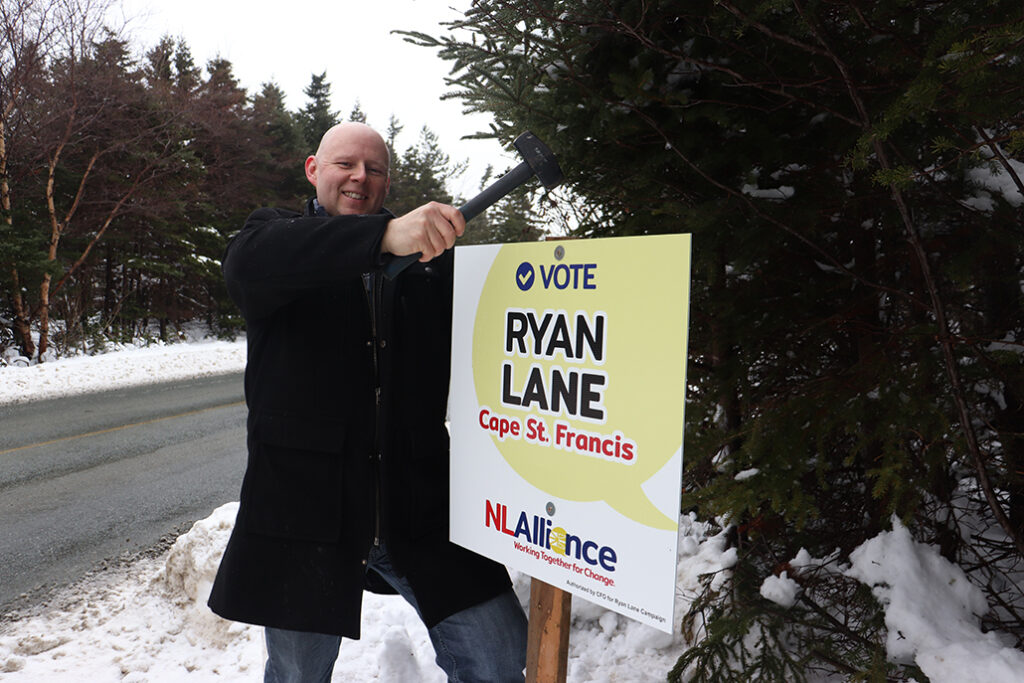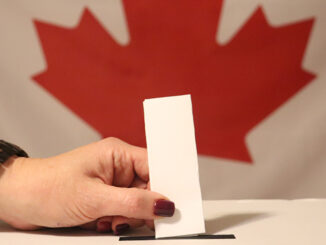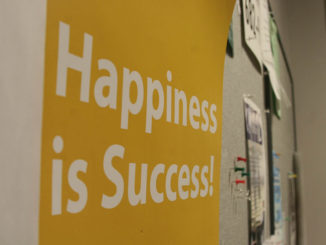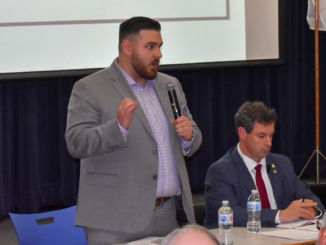With an election set for February 13, the NL Alliance is trying to entice voters across the province.

Patrick Newhook
Kicker News
In the fast-paced realm of Newfoundland politics, the NL Alliance is trying to carve out space for itself.
It came as no big surprise when Premier Andrew Furey asked Lieutenant Governor, Judy Foote, to dissolve the House of Assembly on Jan.15. The province was going into a winter pandemic election.
With the election date set for Feb. 13, Furey has given parties only 28 days to campaign. Candidates across the province have been racing to get their message out and attract as many votes as possible.
The NL Alliance is one of four registered parties in the province. For this election, it originally had seven candidates but is now running only six. Party leader Graydon Pelley suspended his campaign for health reasons.
One candidate for the party is Andrea Newbury, who is running in the district of Mount Scio.
“A couple of years ago in 2018, I decided to hop on board on NL Alliance as the provincial secretary,” said Newbury. “I felt that the politics in Newfoundland needed an overhaul.”
Unlike other political parties in Newfoundland and Labrador, a key goal of the NL Alliance is to remove partisanship from provincial politics.
It plans to do that by having a more collaborative approach to government. This is something that Newbury feels is necessary.
“I just feel that the partisanship that we’ve seen has gotten us nowhere and that it often stifles great legislation . . . ,” said Newbury. “If that was eliminated in our House of Assembly and we were forced to collaborate, I believe we would see a lot of great things happen in our province.”
The NL Alliance was officially registered in 2019. The party formed after the leader, Graydon Pelley, left his position as the president of the PC party in 2018.
Struggle for recognition
Ryan Lane is running for the Alliance in the district of Cape St. Francis. This will be his second time running there as a member of the party.
As a candidate for a new party, he says, it can be challenging trying to get the message of the Alliance out.
“The first thing I’d say is trying to provide people an understanding of exactly what the Alliance stands for,” Lane said. “It’s been a bit of a challenge. People are used to the traditional format where you have a party with policies in place when election time rolls around, We don’t operate that way as a party.”
Lane used to be a member of the Liberal party. He ran in the 2011 provincial election in the district of Terra Nova but lost to the PC party candidate.
He joined the NL Alliance after meeting and speaking with leader Graydon Pelley, and because he felt that he agreed with the party’s values.
Running as a liberal and running as an Alliance candidate has proven to be different. He says getting recognition as an non-traditional candidate in Cape St. Francis is the biggest factor.
“. . . (B)ecause it’s a Tory stronghold, getting people to recognize that the Alliance is a party that is built around an idea that would be beneficial to Newfoundland and Labrador is kind of a struggle because the party is so new,” Lane said.
Since Confederation, Newfoundland has been exclusively governed by two parties. Other parties such as the NDP have struggled to gain power or a presence in the House of Assembly. The NDP has elected candidates but other parties such as the Green Party have little to no presence.
Kelly Blidook, an associate professor of Political Science at Memorial University, says smaller political groups face many uphill challenges when trying to establish themselves.
“It’s that they’re not established and it’s really hard to change people’s minds to vote for a different party,” Blidook said. “It’s even harder to get them to vote for something they’re unfamiliar with.
“That’s basically where third parties are at. It’s trying to not only get people to change their vote but then to go beyond changing their vote and then changing it into something new.”




Be the first to comment